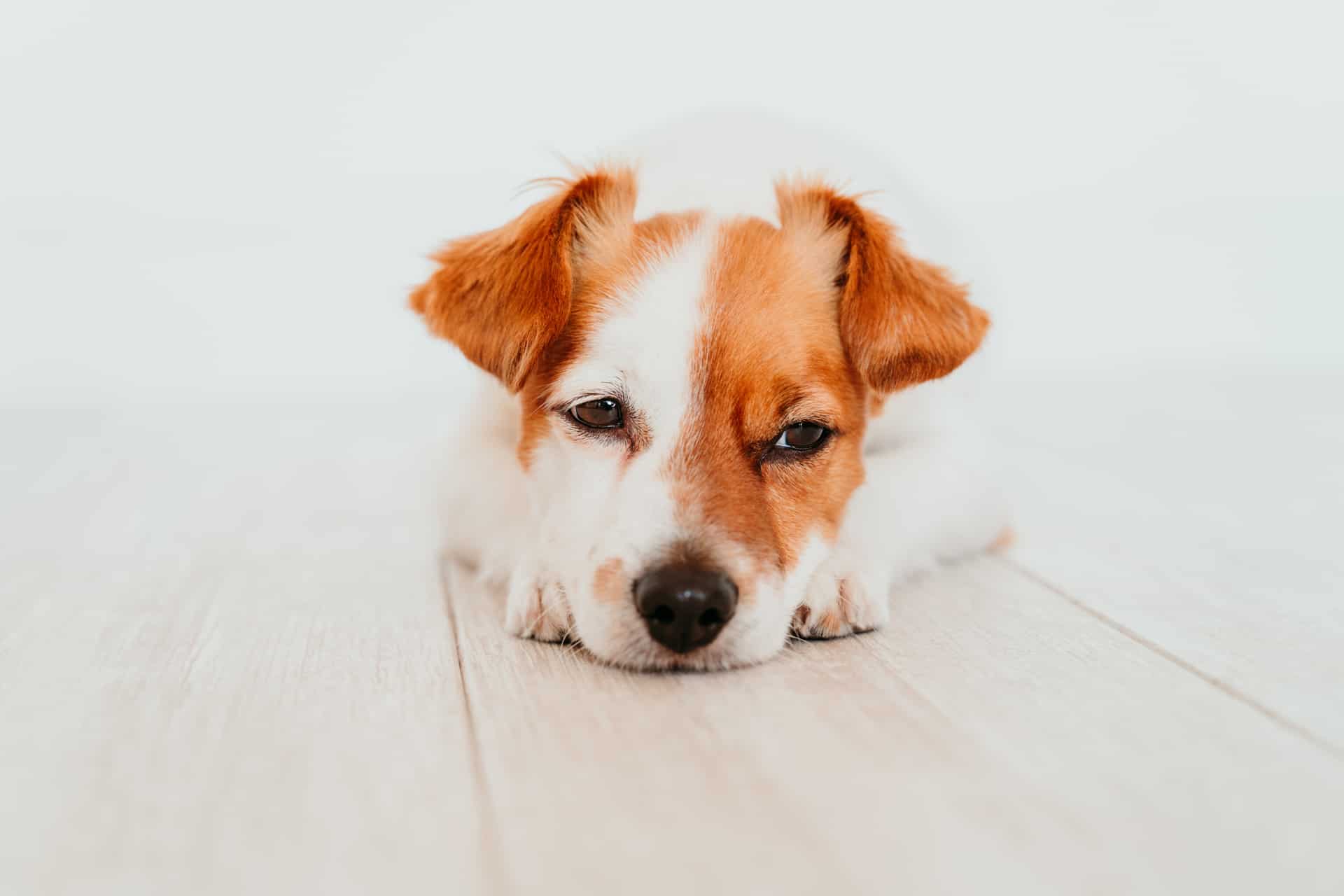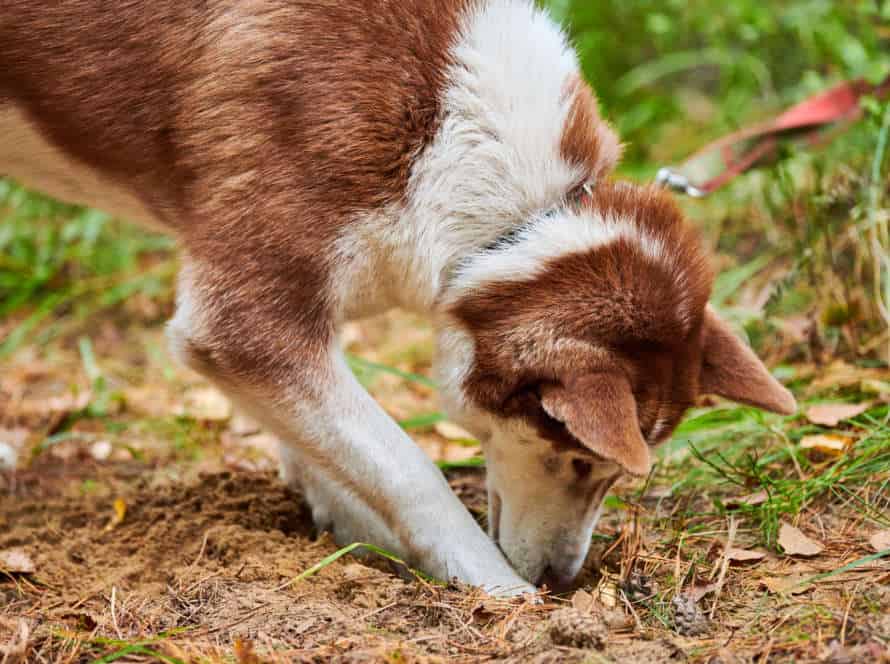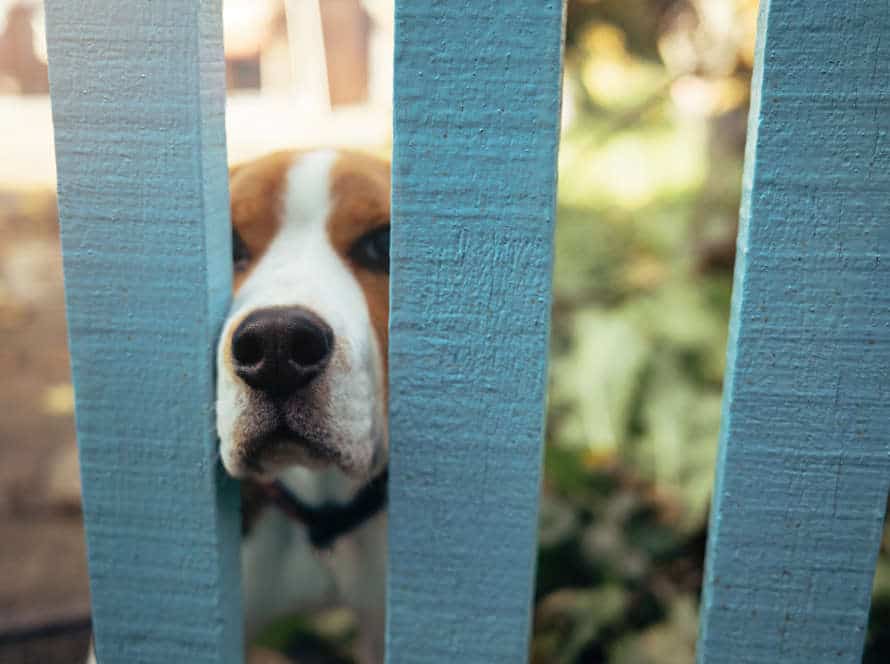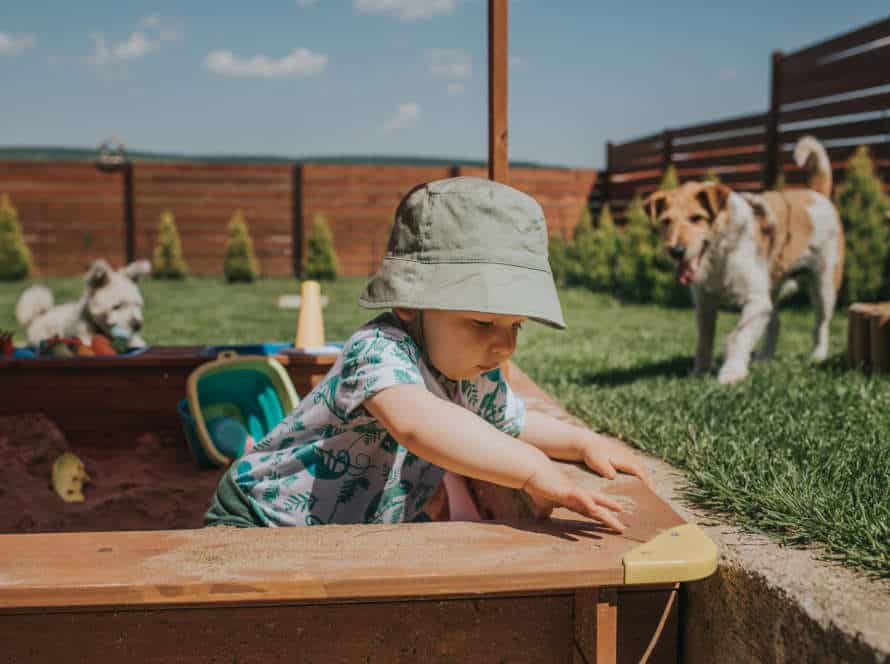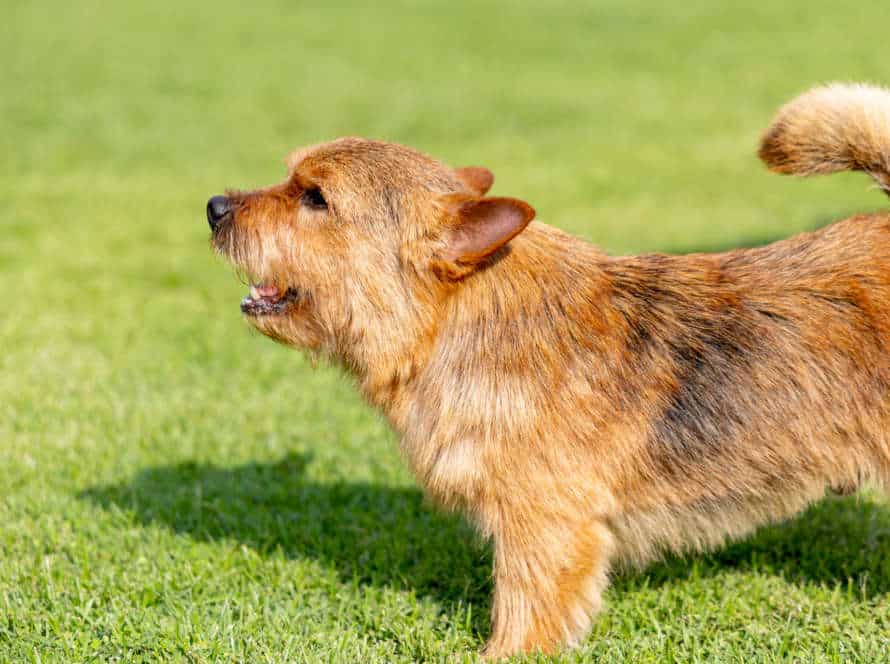How to Help Puppies Overcome Fear-Induced Aggression
Puppies may act aggressive due to fear. As a pet owner, there are steps to help! Firstly, identify what causes fear in your pup. No punishing or scolding them as it can worsen the issue. Desensitize your pup to the trigger but in a safe place. Use positive reinforcement like treats or praise for good behaviour. If the aggression is severe, get help from a vet or animal behaviourist. With patience and consistency, your puppy can overcome fear-induced aggression and lead a happy life!
Understanding Fear-Induced Aggression in Puppies
Puppies may act aggressively or fearfully when faced with a traumatic event or an unknown situation. This is called fear-induced aggression. To assist them, we must first understand the source of the fear. Then, we can work on helping the pup overcome it.
Causes of Fear-Related Aggression in Puppies
Fear-related aggression in puppies can be caused by various factors. These include lack of socialization, genetic makeup, past traumatic experiences, and environmental stressors. To assist puppies in overcoming fear-induced aggression and becoming confident, understanding these causes is key.
Lack of socialization: Puppies not exposed to different people, animals, and environments between 3-14 weeks may later show fear and aggression to unfamiliar stimuli.
Genetic disposition: Certain breeds are more likely to feel fear and display aggression due to their genetics.
Past traumatic experiences: Negative experiences, such as abuse or an attack, may lead to fear and aggression towards similar stimuli.
Environmental stressors: Chaotic households or inconsistent training styles can induce fear and aggression in puppies as a coping mechanism.
To help puppies with fear-induced aggression, positive reinforcement, gradual exposure to unfamiliar things, and addressing any medical/behavioral issues is necessary. Professional help from a dog trainer or behaviorist may be needed if the aggression is severe or continuous.
Recognizing Fear-Induced Aggression in Puppies
It is essential to recognize fear-induced aggression in puppies, as it is important for their healthy social and emotional growth. Fear-induced aggression can be difficult to handle, leading to dangerous situations for the puppy and those around it.
Signs of fear-induced aggression include:
- Growling, snarling or showing teeth when approached or touched.
- Cowering, hiding or trembling when in a new environment or when people or other animals appear.
- Becoming stiff or freezing when approached or touched.
- Avoiding situations or trying to escape when in a fearful situation.
Pro tip: Socializing puppies from young and exposing them to different people, places, and situations can prevent fear-induced aggression. Professional dog trainers can also help you manage and help your puppy overcome fear-induced aggression.
How Fear-Induced Aggression Affects the Behavior of Puppies
Fear-induced aggression is a behavior exhibited by puppies when they experience fear. This can be loud noises, unknown people or animals. It can lead to unpleasant behaviors, like biting and growling. Knowing why fear-induced aggression happens and how to help the puppy is essential for having a well-mannered and friendly pet.
A few steps to help the puppy overcome fear-induced aggression:
- Identify what triggers the aggressive behavior and try to avoid it.
- Gradually introduce the puppy to the stimulus in a calm environment, while giving treats and praising them.
- Use desensitization and counter-conditioning to change the puppy’s opinion of the stimulus from negative to positive.
Consistency and patience are important to help the puppy overcome fear-induced aggression. If the behavior carries on or worsens, seek professional help.
Training Techniques for Overcoming Fear-Induced Aggression in Puppies
Fear-induced aggression in puppies can be hard to cope with. But with proper training, it can be managed. Here are some techniques to aid your pup in responding positively to stimuli that may have caused fear and aggression before.
Let’s look at how to help puppies battle against fear-induced aggression more closely.
Socialization Techniques to Help Puppies Overcome Fear-Related Aggression
Socialization is a must for puppies. It assists them in connecting with other animals and humans, and conquering fear-based aggression. Here are some socialization strategies to help puppies beat fear-driven aggression:
- Step by step, expose your pup to various settings, noises, and experiences.
- Use rewards such as treats and compliments to motivate good behavior.
- Encourage your pup to mingle with pooches of different breeds, ages, and sizes.
- Socialize your pup with people of different ages, genders, and backgrounds, to aid them in conquering fear of strangers.
- Take your pup to puppy socialization classes, where they can be in a managed setting with other puppies and trainers.
Be patient and understanding when your pup displays fear-aggressive actions. With regular training and positive reinforcement, you can help your beloved pet feel more secure and confident in various circumstances.
Pro Tip: Socialization is an ongoing process that calls for persistence, attention, and positive reinforcement. If you adhere to these strategies, you can assist your pup in overcoming fear-related aggression, and having a happy, healthy life.
Counterconditioning Techniques to Help Puppies Overcome Fear-Related Aggression
Fear-linked aggression is common with puppies. But, counterconditioning can help them battle their dreads and lessen aggressive actions. Two useful counterconditioning techniques are:
- Desensitization: Step-by-step introduce the pup to its fear source and reward it for staying tranquil. For instance, if the pup is scared of strangers, begin by having a stranger far away and reward the pup for staying relaxed. Gradually decrease the distance until the pup is comfy near strangers.
- Positive reinforcement: Reward the pup for exhibiting non-aggressive actions, like staying still calmly or approaching new people or situations without fear.
Pro tip: These techniques need patience, consistency, and positive reinforcement. In case of necessity, get advice from a professional trainer.
Desensitization Techniques to Help Puppies Overcome Fear-Related Aggression
Fear-induced aggression is a common issue in pups, but it can be conquered with desensitization and training. Here are some useful desensitization methods to help:
- Counterconditioning – Introduce the pup to the thing they fear, while pairing it with something they like – like a treat or toy. This can help them beat their fear.
- Gradual Exposure – Begin by exposing the pup to the trigger from a distance, where they don’t show any worry or aggression. Increase the exposure slowly, while paying attention to their reactions.
- Training and Socialization – Sign the pup up for training or socialization programs, to build their confidence and social skills. This may help them learn to control their reactions and better manage their emotions.
- Consult a Professional – If the aggression persists, seek help from a trainer or animal behaviorist. They can diagnose the cause, and provide specialized training.
Professional Help and Support to Overcome Fear-Induced Aggression in Puppies
Fear-induced aggression in pups can be hard to deal with. It’s essential to identify the cause and manage the situation safely. Professional assistance can be invaluable in dealing with this issue. So, let us look at how one can help pups conquer this behavior.
Seeking Help from a Professional Dog Trainer or Behaviorist
Fear-induced aggression in puppies can be difficult to manage. Seeking help from a qualified trainer or behaviorist can make a major change in your pup’s conduct and make their life better. A professional can look at your pup’s characteristics, past, and temperament and give advice, exercises, and training that is special for your pet’s actions.
At your meeting, a specialist will review your puppy’s fear-induced aggression by taking into consideration their breed-specific traits, history, and character. They will help you find the root cause and show you and your puppy how to manage it well.
Professional teaching and assistance can also aid you in recognizing signs of fear-induced aggression in your pet, help you manage their behavior, and give them confidence and sociability. With the correct guidance, help and training, your puppy can beat their fear-induced aggression and live a content and balanced life.
Support Groups for Puppies and Owners Dealing with Fear-Induced Aggression
Fear-induced aggression is a common issue for puppy owners. Support groups provide professional help to address it. These groups offer training, socialization, and behavioural-modification techniques.
Here are some tips to help your puppy:
- Identify the trigger and avoid it.
- Use positive reinforcement and reward-based training.
- Seek professional help if necessary.
Participating in support groups and following these tips can give your puppy the resources and guidance to overcome fear-induced aggression and become a happy companion.
Medications that Can Be Used to Help Puppies Overcome Fear-Induced Aggression
Fear-induced aggression is a common issue in puppies. It can be fixed with the right help and medication. So, your vet may suggest medication to help your pup.
These are some medications that can be used:
- Selective Serotonin Reuptake Inhibitors (SSRIs). They increase serotonin levels in your puppy’s brain, making them less anxious.
- Benzodiazepines. These have a sedative effect, lowering your pup’s fear response.
- Tricyclic Antidepressants (TCAs). These regulate your pup’s mood and reduce aggression.
Remember, never give your puppy any medication without your vet’s advice. Plus, professional help and behavior modification training should also be used to address fear-induced aggression.
Preventing Fear-Induced Aggression in Puppies
Puppies often display fear-induced aggression, particularly if they haven’t been around other dogs or people much. It’s vital to address this behaviour early. Here, we’ll look at some techniques to help your pup overcome fear-induced aggression. Prevention is key!
Encouraging Play and Exercise to Prevent Fear-Related Aggression in Puppies
Encouraging play and exercise in puppies can help to prevent fear-related aggression. Puppies that are active and play often show less anxiety and aggression than those that don’t. Here are some tips for helping your pup to overcome fear-induced aggression with play and exercise:
- Start with short and gentle play sessions, then gradually increase the amount of time and intensity as your puppy grows.
- Choose toys like balls and tug ropes to get your puppy playing and running around.
- Take your puppy out for daily walks and other activities in a safe and controlled environment.
- Keep to a consistent schedule of playtime and exercise to help your puppy feel secure and safe.
- Keep an eye on your puppy’s behavior during play and exercise, then reward good behavior with positive reinforcement and treats.
Using these techniques will help your puppy to overcome fear-induced aggression and become a confident, happy adult dog.
Avoiding Situations that Trigger Fear-Induced Aggression in Puppies
To stop fear-induced aggression in puppies, avoid situations that make them act aggressively. Here are tips to help:
- Keep them from intimidating situations. Pups can be scared of unfamiliar things, noises, or people. Don’t put them in a situation that makes them anxious.
- Do gentle socialization. Show them new sights, sounds, and smells in a safe way to help them be brave.
- Use positive reinforcement. Reward good behavior with treats or compliments. This helps break bad habits.
- Be patient. Change doesn’t happen right away. Give them time to get used to new places.
- Get professional help. Speak to a vet or dog trainer for advice.
Follow these tips to keep puppies happy and confident and prevent fear-induced aggression.
Positive Reinforcement and Training to Prevent Fear-Related Aggression in Puppies.
Positive reinforcement & training can help stop fear-related aggression in puppies. Here’re some tips to help:
- Socialize your pup to different people, animals & environments from young.
- Use positive reinforcement techniques like treats, toys & praise to reinforce good behavior.
- Avoid physical punishment & negative reinforcement as this could increase fear & aggression.
- Expose your puppy gradually to new situations & stimuli, so they learn to cope without fear.
- If your puppy shows signs of fear or aggression, get the help of a pro trainer or behaviorist to make a training plan.
Positive reinforcement and proper training techniques can help prevent fear-induced aggression in puppies and build a happy, healthy relationship.
Frequently Asked Questions
1. What causes fear-induced aggression in puppies?
Fear-induced aggression in puppies can stem from a variety of factors, including lack of socialization, traumatic experiences, genetic predisposition, and fear of new people, animals, or stimuli.
2. How can I help my puppy overcome fear-induced aggression?
There are several ways to help your puppy overcome fear-induced aggression, including desensitization and counter-conditioning, positive reinforcement training, socialization exercises, and seeking professional help from a qualified dog behaviorist or trainer.
3. Can fear-induced aggression in puppies be prevented?
While fear-induced aggression in puppies cannot always be prevented, early socialization and exposure to a variety of people, animals, and stimuli can help reduce the likelihood of this behavior developing.
4. Are certain breeds more prone to fear-induced aggression?
While no breed is inherently aggressive, certain breeds may be more prone to fear-induced aggression, such as those that were bred for protection or hunting purposes. However, it is important to remember that each dog is an individual and behavior is largely influenced by their environment and experiences.
5. Is punishment an effective way to address fear-induced aggression in puppies?
Punishment is not an effective way to address fear-induced aggression in puppies, as it can create more fear and anxiety, exacerbate the behavior, and damage the trust between you and your puppy. Instead, positive reinforcement techniques should be used.
6. How long does it take to overcome fear-induced aggression in puppies?
The time it takes to overcome fear-induced aggression in puppies varies depending on the severity of the behavior and the individual dog. With proper training, socialization, and management, some puppies may see improvement in a matter of weeks or months, while others may take longer.

